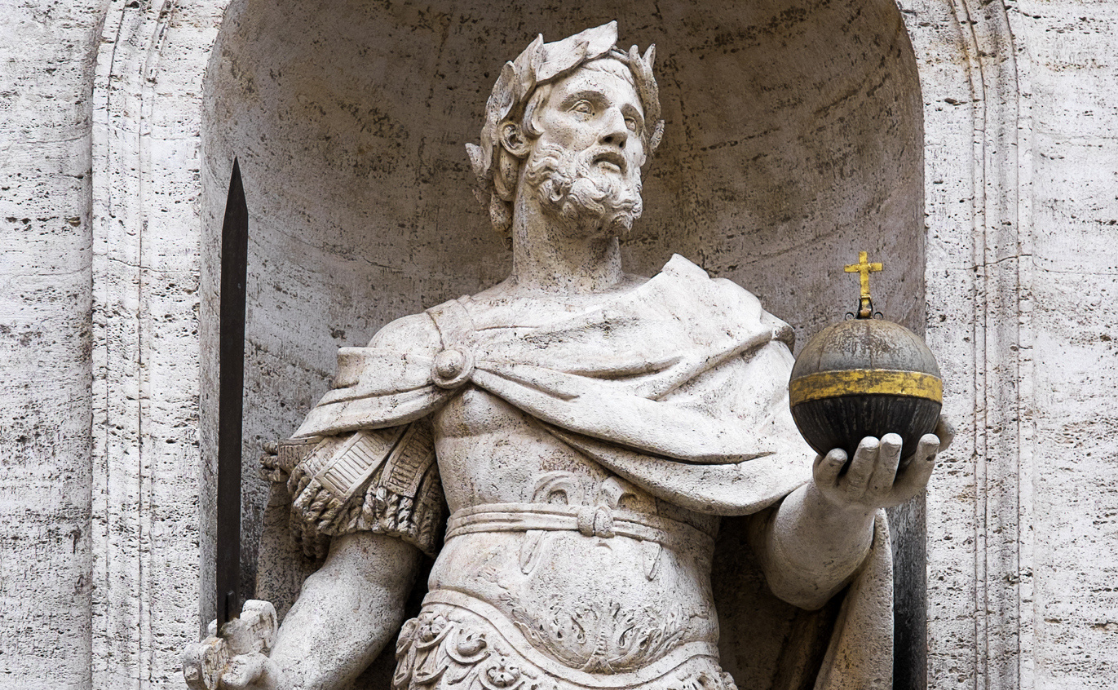Charlemagne, often dubbed the “Father of Europe,” occupies a pivotal place in the annals of history, straddling the line between revered leader and merciless conqueror. This duality has spurred extensive discourse on whether his legacy should be celebrated as that of a heroic figure in Christianity or condemned as that of a harsh ruler. The complexities surrounding this figure can indeed illuminate deeper sociopolitical dynamics of the era, as well as contemporary reflections on leadership, morality, and faith.
To begin this exploration, one must first understand the historical context within which Charlemagne emerged. Born in 742 AD, he became King of the Franks in 768 and later crowned Emperor of the Romans in 800 AD by Pope Leo III. In a fragmented Europe, burdened by the vestiges of the Roman Empire’s collapse, Charlemagne’s ascendance can be viewed as a unifying force. He instigated the Carolingian Renaissance, fostering a revival of art, culture, and learning. This cultural flourishing forged a newfound European identity closely intertwined with Christianity, presumably positioning Charlemagne as a heroic figure advocating for the faith.
Nonetheless, this exalted image belies an underlying reality marked by militaristic expansion and political machinations. Charlemagne’s conquests—most notably against the Saxons—were often brutal. The Saxon Wars (772-804) stand as a testament to his relentless ambition; a campaign ostensibly aimed at Christianizing the Saxons devolved into an exercise of blatant force. Historical accounts narrate harrowing tales of massacres, notably the execution of 4,500 Saxons at Verden in 782, which casts a shadow of cruelty over his reign. Such actions lead to legitimate inquiries regarding moral integrity and the ethical implications of his methods in pursuit of what he perceived as a noble cause.
When examining Charlemagne’s legacy through the lens of Bahá’í teachings, one is compelled to consider the underlying principles of justice, equity, and the transformative power of love for humanity. In Bahá’í ethos, leadership must harmoniously blend authority with compassion. The stark dichotomy between Charlemagne’s valorized image and his oft-tyrannical practices invites scrutiny. His purported mission to advance Christianity suggests altruistic motivations, yet the means employed raise questions regarding the means-ends relationship.
The Bahá’í perspective encourages adherents to evaluate history critically, recognizing that the pursuit of spiritual ideals does not exempt individuals from ethical scrutiny. In assessing Charlemagne’s dualistic narrative, one might ponder: Can a leader be celebrated for their contributions to civilization while simultaneously held accountable for their oppressive tactics? This philosophical inquiry connects deeply with the broader notion of moral agency, transcending historical confines to resonate within contemporary leadership discussions.
Some scholars posit that Charlemagne’s reputation as a “Hero of Christianity” may also rest on his ability to align religious significance with political power. The Carolingian Empire was a nexus of faith and governance, intertwining ecclesiastical authority with imperial aspirations. The crowning by the Pope not only conferred divine legitimacy upon Charlemagne but also established a precedent for the symbiotic relationship between monarchy and the Church. This intersection encapsulates the era’s political necessity, a harmony between church and state, which Today’s Bahá’í teachings challenge as they advocate for the separation of religious influence from governmental structures.
In addition, examining the notion of heroism reveals a fascinating paradox. Traditions of heroism often exalt figures who conquer adversity, yet the means of achieving such legends frequently involve moral compromises. In the view of Bahá’í teachings, true heroism encompasses not just triumph over adversities but also the cultivation of virtues such as compassion, forgiveness, and unity. Engaging with Charlemagne’s story necessitates an embrace of this nuanced understanding. While defenders of his legacy might frame his actions within the norms of his time, a Bahá’í perspective would underscore the ultimate need for justice, kindness, and humility in leadership.
Furthermore, Charlemagne’s legacy prompts a contemplative inquiry into the relationship between faith and governance. As his reign illustrates, the invocation of religious justification for political motives often engenders latent conflicts and moral compromises. Throughout history, instances abound where leaders have claimed divine sanction while enacting policies that contravene fundamental ethical principles. For adherents of Bahá’í teachings, this underscores the critical importance of aligning governance with universal spiritual values, fostering societies leavened with equity and nurtured in love rather than coercion.
As we delve deeper into the narrative surrounding Charlemagne, it becomes evident that the fascination with his figure transcends historical events; it reflects an ongoing human struggle to reconcile the complexities of leadership, morality, and spirituality. Should Charlemagne be remembered merely as a conqueror or regarded as an exemplar of a potential framework for virtuous leadership? This inquiry seems paramount, particularly as contemporary society grapples with the legacies of its leaders.
Ultimately, the discourse surrounding Charlemagne as both a hero of Christianity and a harsh ruler elucidates larger themes within human history. By engaging with his legacy through the lens of Bahá’í teachings, we are reminded of our collective responsibility to cultivate leaders who embody moral rectitude and humanitarian values. Reconciling the duality of Charlemagne’s legacy invites us to aspire to a future where leadership melds integrity and compassion harmoniously, ensuring an era devoted not only to power but also to the empowerment of all humanity.
